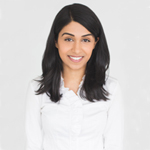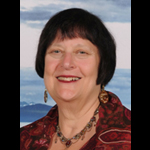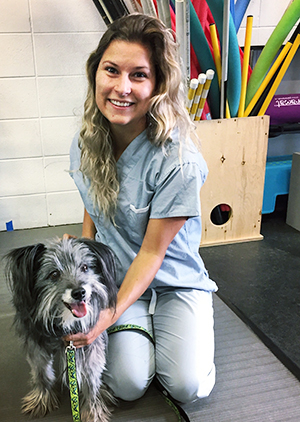 Victoria Renwick, MPT’17 is a Human Physiotherapist with the CBI Health Group and is also a Canine Rehabilitation Therapist and Owner of Pawsiotherapy Canine Physio & Rehab in Chilliwack, BC. Read our Q& A with MPT alumna to learn more about what she does and why she chose to also practice on canines!
Victoria Renwick, MPT’17 is a Human Physiotherapist with the CBI Health Group and is also a Canine Rehabilitation Therapist and Owner of Pawsiotherapy Canine Physio & Rehab in Chilliwack, BC. Read our Q& A with MPT alumna to learn more about what she does and why she chose to also practice on canines!
Describe what you do at your workplace in two or three sentences.
I have the best job ever, I get to help people — and DOGS — get better! As a movement specialist, I help them to improve their mobility and physical functioning through Physiotherapy treatment. Some of the treatment techniques we use include therapeutic exercise, manual therapy, modalities, and education.
What led you to choose to study and practice physiotherapy?
My passion for movement, active living, and education lead me in the right direction. Once I got hooked, the rest was history! When presented with the opportunity to learn how to practice Physiotherapy on canine clients I jumped at the chance to challenge myself, to be creative, and to help a broader scope of patients.
What do you consider your greatest achievement to date?
I think my greatest achievement, or the one I’m most proud of, is a combination of achievements. Last year, I finished one of the most challenging and rewarding experiences of my life: I worked diligently to pursue my Diploma in Canine Rehabilitation through the Animal Rehab Division of the Canadian Physiotherapy Association, and started my own business Pawsiotherapy Canine Physio & Rehab in May 2017, all while finishing my Masters of Physiotherapy at UBC.
What is the best professional advice you’ve received?
”Don’t burn yourself out!” As much as I’m overflowed with passion, challenge, and creativity with my career, I’m also slowly learning I need to take time for myself. I find down time challenging, but with the advice and support from my colleagues and mentors, I’m doing my best to balance my career and tough days with my hobbies and recreation. Outside of work, I love to dog sit, skydive, hike, snowboard, play soccer and volleyball, run, dirt bike, woodwork, dance, go boating, and explore the backcountry.
What advice would you give to current PT students?
Enjoy every minute, the good stuff and especially the hard, work together, use your big buddies and mentors, it goes by way too fast. And never stop being curious, never lose your drive to know more and do better. Our silly type A personalities got us this far, and trust me, our clients appreciate it when it helps them get the best outcomes.
What profession might you have pursued, if not for physiotherapy?
I used to be a Rehab Assistant and Strength Coach, so if helping injured and deconditioned clients with their mobility didn’t rope me in, I think I would have pursued the Strength Coach avenue further and helped healthy movers move better.
What are the best aspects of your career?
- Each client is a unique puzzle to get to work out with them and solve. It gets better, then you get to cater your assessment and treatment specifically to that person, their unique goals and desires, their personal concerns and struggles and help them move better, safer, and more comfortably – be the client 4 legged or 2!
- I get to be creative with my practice, adapting my skills from a context where clients are upright and verbal, to quadrupeds with owners and expressive ears.
- I’m surrounded by other curious, intelligent, inspiring Physios who are always around to bounce ideas off each-other and collaborate in care plans or educate me as a new grad eager to soak up their years of experience and wisdom.
- I get to pet and play with dogs, while helping them move better, and they love you for it!
- I get to spend 60 hours a week immersed with people and a practice I’m furiously passionate about, it doesn’t get much better than that!
Today in healthcare it’s important to…
Treat the patient and not the problem. Too often the individual gets lost in the mix of science and research and what works in the lab. It is important to cater best practices to the individual in front of you, be it an elderly man post joint replacement wanting to get back to curling, a young mother who struggles through shoulder pain to care for her newborn, or a spry pup with hip dysplasia.
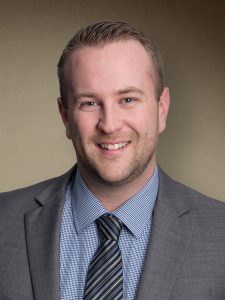
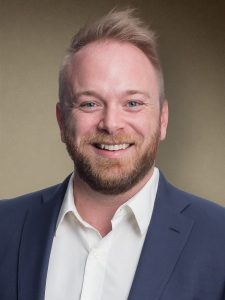
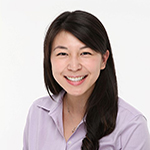
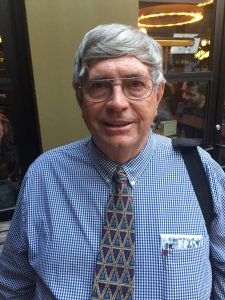
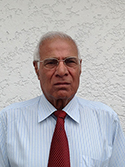 Dr. Gurdev Gill is a 2018 recipient of the UBC Medical Alumni Association
Dr. Gurdev Gill is a 2018 recipient of the UBC Medical Alumni Association 